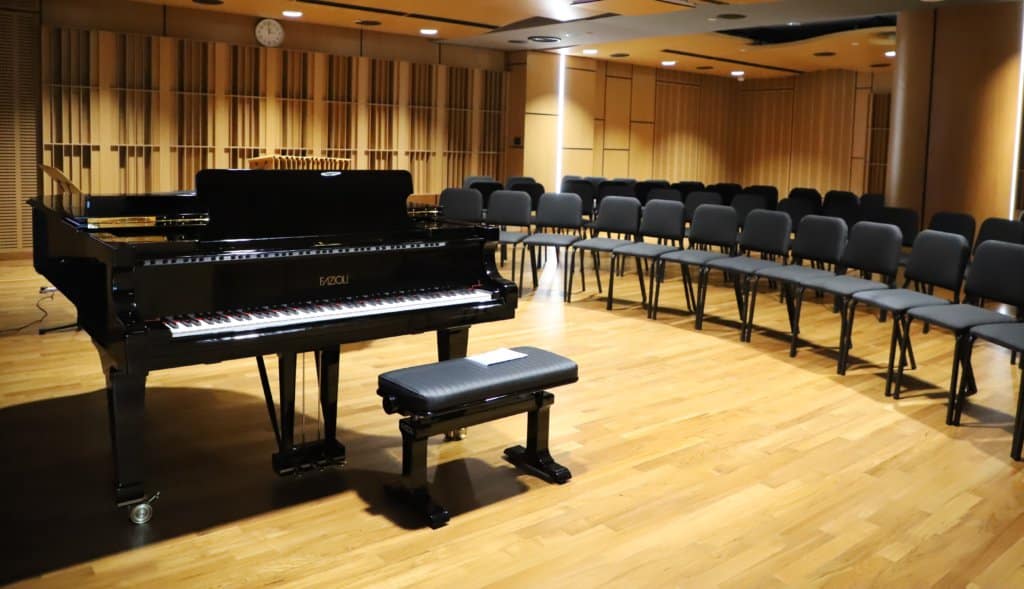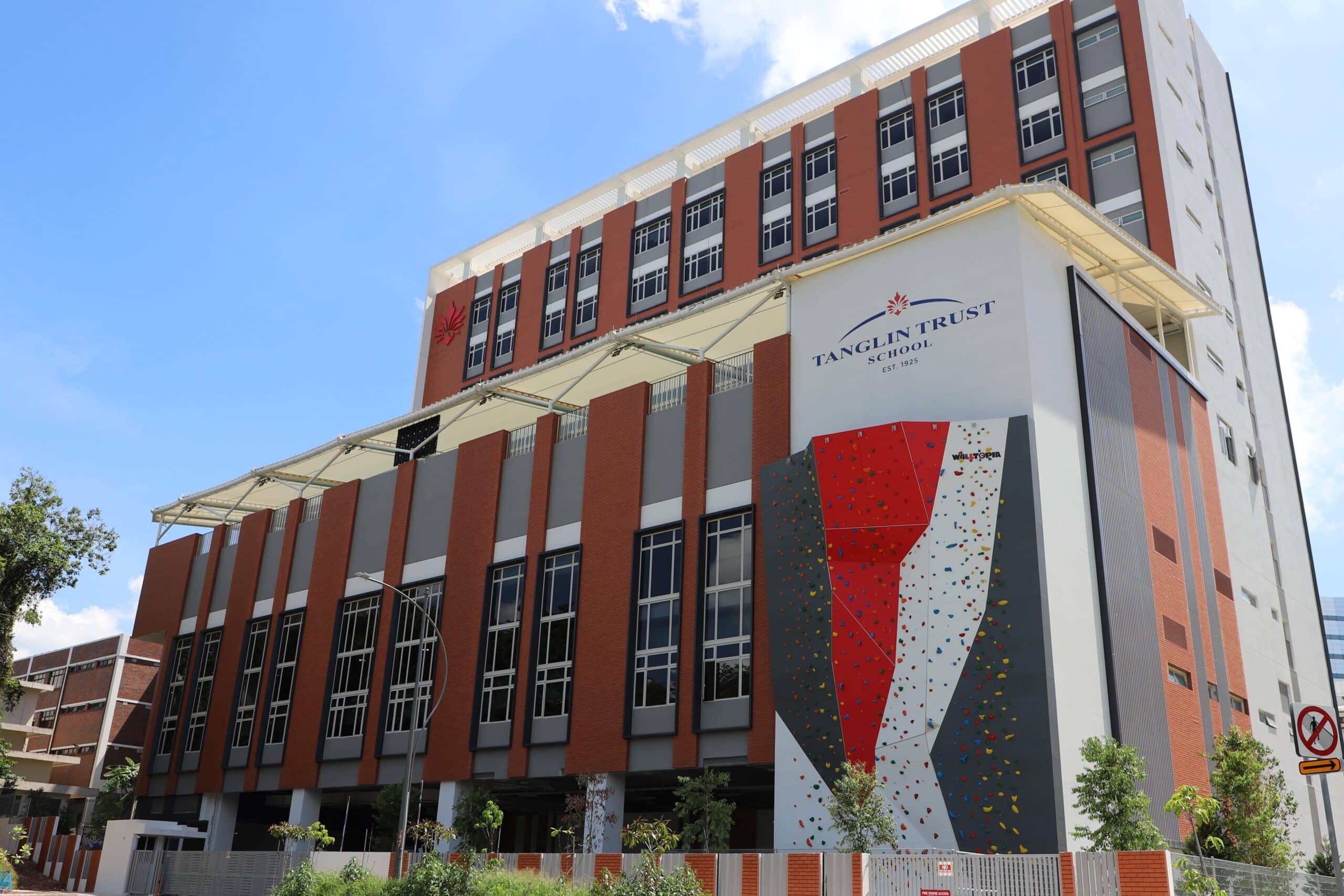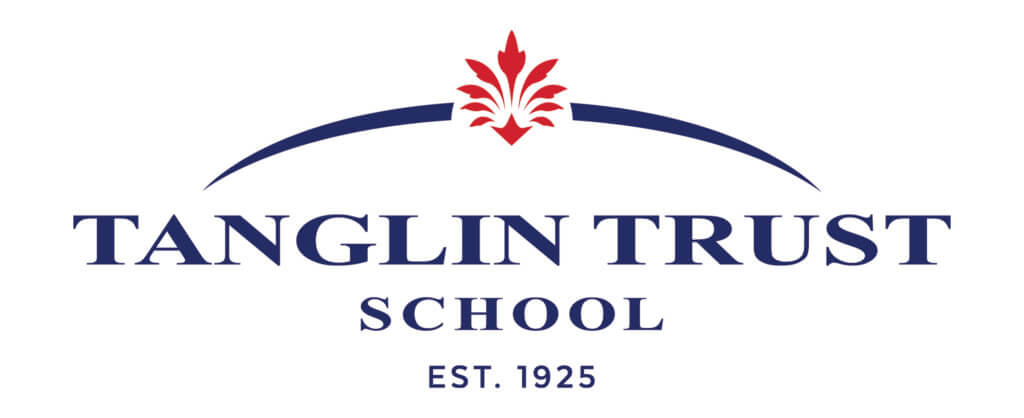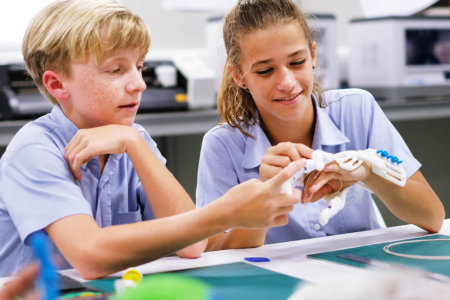How do children learn best? It’s a question many, from schools to cognitive scientists, have tried to answer to varying degrees of elucidation. And there’s no static answer either. What will work when the US put a man on the moon will no longer be relevant in an age when AI and automation are set to change the world.
But there is some robust evidence that tells us what approaches to learning are effective. Music classes help children process the sounds of speech faster – with benefits that carry into adulthood. Physical activity tends to lead to better grades, cognitive performance (such as memory) and classroom behaviours. Early foreign language instruction correlates with greater performance in English reading and listening.
While these are randomised controlled trials, something more real is taking place at Tanglin Trust School. It’s a tangible kind of broad and balanced education – clear to any visitor and the UK Ofsted British Schools Overseas inspection team. Tanglin Infant, Junior and Senior Schools were awarded the highest possible grade – “outstanding” – in a 2022 inspection.

Tanglin Trust School pianists practise and perform using three brand-new Fazioli Grand Pianos.
Source: Tanglin Trust School
Perhaps the most obvious emblem of this is where you’ll find Director of Learning John Ridley’s office: the Tanglin Centenary Building. Eleven-storey and accounting for nearly 25% of the school’s entire floor space, it’s state-of-the-art. From Ridley’s office, the view stretches across one-north – the metropolis’s epicentre of knowledge and innovation-driven industries – one of the reminders of what lies in store after one’s striving for physical, social, emotional and intellectual growth here.
For here there are spaces with sunlight streaming into music lessons, lifting moods and boosting energies. Professional recital halls with proper acoustic design and tasteful wood-effect soundproofing. An Institute that models a business meeting room, where former Olympians and industry experts from the likes of Dyson and YaleNUS College give guest talks. International competition standard 2.5-metre-wide lanes for swimmers. Fifteen-metre high bespoke climbing wall designed and manufactured by Climbing World Championship wall makers, Walltopia. Over 800 square metres of an Olympic-standard Gymnastics Centre.
“It’s the kind of environment that makes the students want to step up,” says Ridley.
Fancy facilities are no panacea for bad pedagogy – and Tanglin’s staff tackle their weighty roles by keeping up with the latest research in education and through continuous professional development.
They start early. In Infant School, teachers lead a strong, evidence-based phonics programme to help children read and speak well. With the help of edtech, competitions, challenges and well-stocked libraries, teachers succeed not only in the technical aspects of listening and speaking, but in encouraging a love of language and reading from a really early age.
In Junior School, students host talks, recite poems, speak about a famous person, read aloud from a novel, and more. The challenges get more demanding as they age – as do the benefits.
“You will not believe the confidence that 10-year-olds end up with to be able to talk aloud to a group of strangers,” says Ridley. “That really sets them up for Senior School where they have got debating societies, World Scholar’s Cup societies, project work, and presentations. The skills that they develop there will blow your mind. Certainly mine.”
What about heart? Anyone can build the next life-saving vaccine, but not all can grapple with the high-stakes question of who gets the shots first.
For this, Tanglin’s big stage may offer some insight – specifically in how a team of 82 students, actors, designers, dance choreographers, musicians, and backstage crew pulled off four nights of performances of the Broadway classic West Side Story.
It’s never easy to spark chemistry in a big group. Genders didn’t always match the tessitura of the written score. And given how Tanglin has over 50 nationalities represented in its 2,800 student body, neither did voices to the story. In the end, creativity and imagination prevailed. The cast ended up with a much greater understanding of their individual voices. “They embraced the challenges with energy, real enthusiasm and the sense of teamwork and camaraderie was impressive,” says Music Director Rob Hall.

Tanglin Trust School’s aquatic centre has a 50m swimming pool, a lightning-proof canopy and a two-metre deep pool with international competition standard 2.5-metre-wide lanes. Source: Tanglin Trust School
The collaboration, critical thinking, creative thinking, communication and collaboration in play here reflect the key skills organisations like the World Economic Forum describe as “needed in the 21st century.” Each skill is crucial. For Ridley, however, communication is by far the most important. From digital communication to non-verbal cues in face-to-face conversations, good communication can be the impetus for other skills, like collaboration and critical thinking, to follow.
“If you look at cutting-edge anything, it’s not being developed by an individual. It’s being developed by a team. It’s really important that students get the experience of working in a team and understanding how different roles work,” he says. “As for critical thinking, the library team does a lot of sessions on research skills and academic honesty such as how to avoid plagiarism and being critical about sources you’re using. Part of the assessment is your evaluation of those sources – so that is great preparation for university and life generally.”
Follow Tanglin Trust School on Facebook, LinkedIn, Instagram and YouTube












